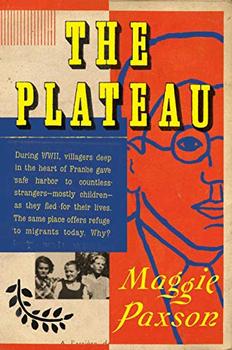Summary | Excerpt | Reviews | Beyond the Book | Readalikes | Genres & Themes | Author Bio

 Book Reviewed by:
Book Reviewed by:
Elisabeth Cook
Buy This Book
This kind of work is important, but it wasn't what I was looking for. I wanted social science that landed smack on the inside of peaceful societies and studied human interactions at ground level there, distilling something about how peace works in its tight mechanics. I wanted empirical research that regarded the social body up close and asked about its long-term health and stability; research that asked how, in hard times, regular decency can sometimes translate into extraordinary kindness. Here and there I found brilliant examples of work like this, but strikingly few of them.
Why, I began to wonder, is peace so hard to think about? Or conversely, why is violence so easy?
When writers and academics talk about violence, it can seem to have a "thingness," to stand out from the background. It can be counted (a shot, an explosion, a bullet, a death), or so we believe. It can be added up and placed into data sets. In the aggregate, and with a measure of confidence, political scientists can fit violent acts into models, which they use to make statements about the world. Violence happens: a gun goes off; a person is killed; a neighborhood is raided; a border is breached. The n is large here; the data take shape. We can decide that more violence happens, say, when there are more young men than usual, or when there is a weak state, or mountains, or too much petrol in an economy. Violence happens, and it is awful, and it is counted; and from that counting, the contours of probable outcomes are given a local habitation and a name.
But can peace be counted? Where is it located? When does it happen? Peace lacks this analyzable "thingness": It seems like a non-event, a null set. Characterizations of peace and peaceful societies-from the Eden of the Bible to the "radiant future" of Lenin-look dull and flat, or else gauzy and kitsch. As a child, I would leaf through The Children's Illustrated Bible in the dentist's waiting room. In the Eden of those illustrations, religious peace looks like the beatific expressions of light-skinned people gazing heavenward. Perhaps a lamb sits there, too, legs folded, under a tree. Peace is bland and blond, utterly lacking the dark ring of truth.
The political peace of Marx and other visionaries of the nineteenth century is not much easier to make out. In the end, at any rate in Marx's version, it looks like getting to hunt and fish when you want and passing around the milk can so everyone gets a fair share. It's the end of history there, in the land of peace at the end of time, after the wars have all been fought and all the blood is shed. On the subject of capitalism, Marx was keen-eyed, detail-oriented, and extremely voluble. But when it came to imagining communism in practice, he, too, reverted, in effect, to lambs, legs folded, under a tree.
In these visions, peace is a thing only to the extent that it is an impenetrable, immovable, unchanging thing. There is a long philosophical history to this line of thinking, but the gist-with a nod to Descartes and his venerable method-is this: Some stuff (the physical world) is amenable to science and scientific law, while other stuff (poetry, theology, the matter of emotion) just isn't. Peace-a place where nothing ever happens-can't, in our easy thinking, be divided up at all. And if it can't be divided, it can't be studied; only felt. That's a terrible shame. After all, what could be more important than the actual content of peace? What could be more useful, when you look into the eyes of individual people who have faced violence right up close, than to have some understanding of what kind of effort peace might take? Of what ingenious (or even banal) habits it depends upon?
It's worth trying, no?
What if we began by regarding peace not as timeless, but as dynamic; not located in the beginning or the end, but in the unfolding; something not of the ether, but of lived grounds and interactions; something not perfect but flawed and rough-grained? Social science can handle that. It can handle dynamics, can look toward the longue durŽe, settling happily into the study of actual, imperfect behavior. That kind of research requires no calls to the angels or to Elysium. You just look into the faces of real people and the connections they make or don't make with each other, the stories they tell or don't tell, and the ways they decide or don't decide to treat a stranger as one of their own.
Excerpted from The Plateau by Maggie Paxson. Copyright © 2019 by Maggie Paxson. All rights reserved. No part of this excerpt may be reproduced or reprinted without permission in writing from the publisher.




Information is the currency of democracy
Click Here to find out who said this, as well as discovering other famous literary quotes!
Your guide toexceptional books
BookBrowse seeks out and recommends the best in contemporary fiction and nonfiction—books that not only engage and entertain but also deepen our understanding of ourselves and the world around us.